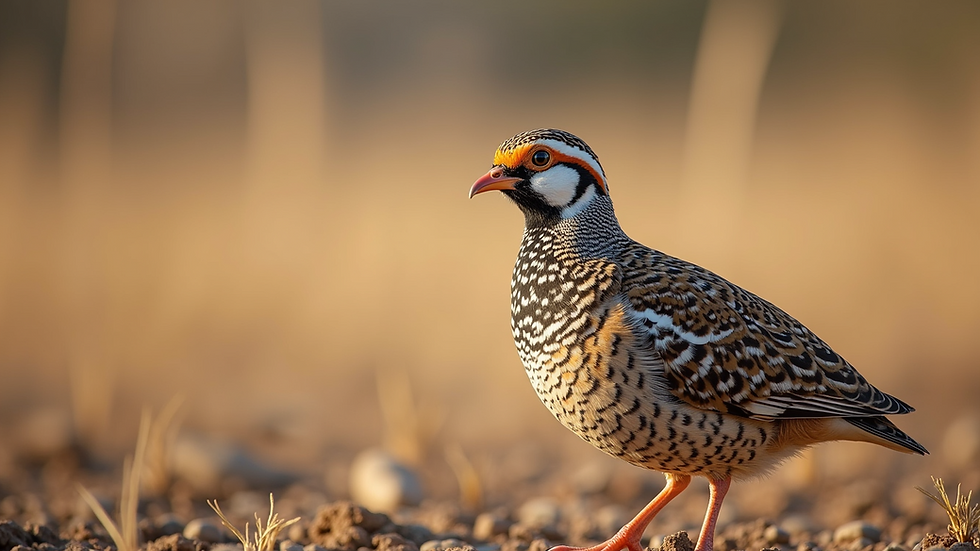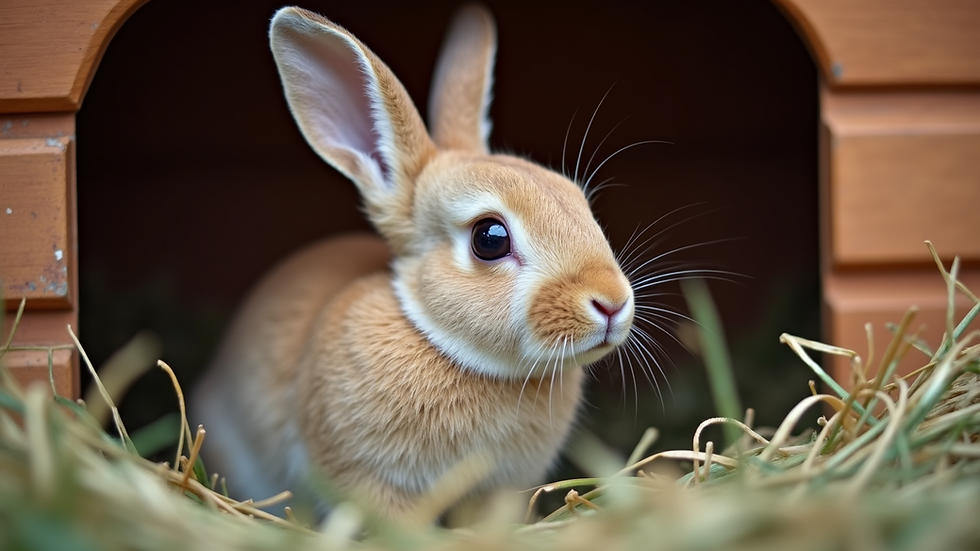Discover the Best Practices for Raising Quail on Farms
- chancevernon2234
- Jul 17, 2025
- 4 min read
Raising quail can be a rewarding venture for farmers and hobbyists alike. These small birds are not only a source of delicious meat and eggs, but they also require less space and resources compared to traditional poultry. If you are considering adding quail to your farm, or if you are already raising them, understanding the best practices can help you achieve success.
In this blog post, we will explore essential tips and techniques for raising quail effectively. From housing and feeding to health management and breeding, we will cover everything you need to know to ensure your quail thrive.
Choosing the Right Quail Breed
Before you start raising quail, it is important to choose the right breed. Different breeds have different characteristics, and selecting the right one can make a significant difference in your farming experience.
Coturnix Quail: This is the most common breed for meat and egg production. They are fast-growing and start laying eggs at around six weeks of age.
Bobwhite Quail: Known for their game bird qualities, Bobwhite quail are often raised for hunting purposes. They are not as prolific in egg production as Coturnix quail.
California Quail: This breed is popular for its beautiful plumage and is often kept for ornamental purposes. They are not as productive in terms of meat and eggs.
When selecting a breed, consider your goals. Are you looking for meat, eggs, or simply a beautiful bird to admire?
Setting Up the Right Housing
Quail require a safe and comfortable environment to thrive. Here are some key points to consider when setting up housing for your quail:
Space Requirements: Quail need enough space to move around. A general rule of thumb is to provide at least one square foot per bird in a cage. If you are raising them in a pen, allow for more space.
Ventilation: Good airflow is crucial to prevent respiratory issues. Ensure that your housing has adequate ventilation, especially in warmer months.
Protection from Predators: Quail are small and vulnerable to predators. Use sturdy materials for cages and pens, and consider adding a roof to protect them from birds of prey.
Bedding: Use straw, wood shavings, or sand as bedding. This helps absorb waste and keeps the environment clean.
Setting up the right housing is essential for the health and well-being of your quail.
Feeding Your Quail
Proper nutrition is vital for the growth and productivity of your quail. Here are some feeding tips:
Quality Feed: Choose a high-quality game bird feed that meets the nutritional needs of quail. Look for feeds that contain at least 20% protein for optimal growth.
Supplementing Diet: In addition to commercial feed, you can supplement their diet with greens, grains, and insects. Quail enjoy foraging, so providing a variety of foods can enhance their diet.
Water Supply: Always provide fresh and clean water. Quail can be sensitive to water quality, so change it regularly to prevent contamination.
Feeding your quail properly will ensure they grow healthy and strong.
Managing Quail Health
Keeping your quail healthy is crucial for a successful farming experience. Here are some health management practices:
Regular Health Checks: Inspect your quail regularly for signs of illness. Look for symptoms such as lethargy, changes in appetite, or abnormal droppings.
Vaccination: Consult with a veterinarian about necessary vaccinations. Vaccinating your quail can help prevent common diseases.
Biosecurity Measures: Implement biosecurity practices to prevent the spread of disease. This includes limiting access to your quail area and keeping equipment clean.
Stress Reduction: Quail can be sensitive to stress. Minimize loud noises and sudden movements around their housing to keep them calm.
By prioritizing health management, you can reduce the risk of disease and ensure a thriving quail population.
Breeding Quail
If you want to expand your quail flock, breeding can be a rewarding option. Here are some tips for successful breeding:
Selecting Breeding Stock: Choose healthy and strong birds for breeding. Look for traits such as good egg production and overall vigor.
Breeding Conditions: Provide a separate breeding area with adequate space and nesting boxes. Quail prefer to nest in secluded areas, so make sure they have privacy.
Incubation: If you are incubating eggs, maintain a consistent temperature and humidity level. Quail eggs typically take about 17 to 18 days to hatch.
Caring for Chicks: Once the chicks hatch, provide them with a warm and safe environment. Use a heat lamp to keep them warm and ensure they have access to food and water.
Breeding quail can be a fulfilling experience, allowing you to grow your flock and enjoy the benefits of raising these birds.
Common Challenges and Solutions
Like any farming venture, raising quail comes with its challenges. Here are some common issues and how to address them:
High Mortality Rates: If you experience high mortality rates, check for signs of disease or poor nutrition. Ensure that your housing is clean and that your birds are receiving proper care.
Egg Production Issues: If your quail are not laying eggs, consider factors such as age, nutrition, and lighting. Quail need about 14 hours of light per day to stimulate egg production.
Behavioral Problems: Quail can sometimes exhibit aggressive behavior. Ensure that they have enough space and that you are not overcrowding them.
By being proactive and addressing these challenges, you can maintain a healthy and productive quail farm.
The Joy of Raising Quail
Raising quail can be a fulfilling and enjoyable experience. Not only do they provide a source of food, but they also offer a unique opportunity to connect with nature.
Whether you are raising quail for meat, eggs, or simply for the joy of keeping birds, following best practices will help you succeed.
As you embark on your quail-raising journey, remember to stay informed and adapt your practices as needed. With the right knowledge and care, your quail can thrive and bring joy to your farm.

In summary, raising quail is a rewarding endeavor that can provide numerous benefits. By choosing the right breed, setting up proper housing, ensuring good nutrition, managing health, and considering breeding, you can create a successful quail farming experience.
With dedication and care, your quail will not only survive but thrive, enriching your farm and your life. Happy quail raising!


Comments